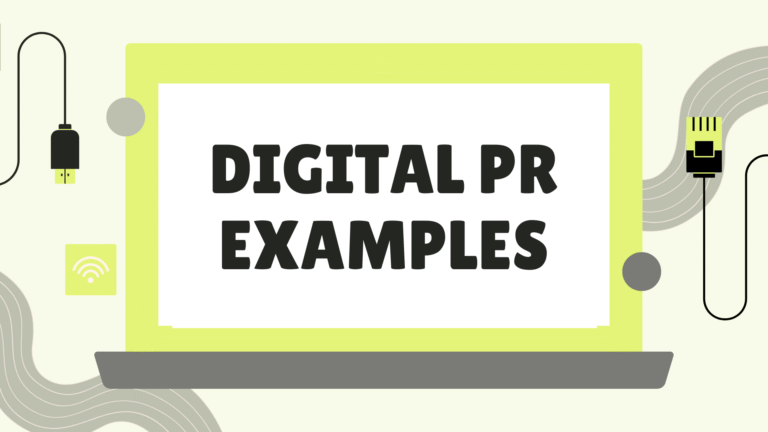More businesses than ever are using freelance marketplaces to find the skills they need, because companies are changing how they hire people. Businesses are utilizing a global pool of independent professionals instead of relying solely on traditional agencies or full-time employees. This change is especially true in the B2B space, where projects often need people with specific skills, the ability to adapt, and a quick turnaround.
The global freelance platforms market size was estimated at USD 5.58 billion in 2024 and is projected to reach USD 14.39 billion by 2030. Yes, it clearly reflects the rapid growth of central freelance marketplaces.
The right freelance marketplace can make a big difference because it links businesses with trusted professionals. But the right platform for you will depend on your goals, budgets, and projects.
I want to help you understand what each of these platforms can do, so I’ll show you the best freelancer marketplaces for B2B services and work in 2025.
What is a Freelance Marketplace?
A freelance marketplace for B2B services is a website where businesses can find, hire, and work with independent contractors. These platforms bring businesses and freelancers together. They offer a lot of different services, from technical jobs like IT support and software engineering to creative jobs like branding, design, and content marketing.
B2B freelance marketplaces are different because they focus on business-to-business needs. These marketplaces are not like platforms made for small personal projects. They are made for businesses that need to work together for a long time, have specialized knowledge, or find solutions that can grow. They often have tools for secure payments, managing projects, talking to each other, and even checking out potential hires.
From what I’ve seen, the best B2B freelance marketplaces do more than just connect clients and freelancers.
- They create a space where trust and quality matter.
- A good marketplace helps businesses avoid making mistakes by giving them access to verified talent, clear reviews, and workflows that are easy to follow.
- They also give freelancers a safe place to show off their work, find clients, and make long-term connections with them.
7+ Best Freelance Marketplaces for B2B Services in 2025
Over the years, I’ve used and watched how different platforms work in real business situations. The following are the marketplaces that I think will be the most helpful for B2B services in 2025.
| Marketplace | Best For | Strengths | Considerations |
| Freelancer.com | Quick projects across many industries | Huge global pool, milestone payments, mobile app | Quality varies, overwhelming number of bids |
| Upwork | Building short- and long-term teams | Wide talent pool, trust system, Talent Scout service | Higher fees, competitive marketplace |
| Toptal | Specialized, high-stakes projects | Elite vetted freelancers (top 3%), strong expertise | Premium rates, smaller pool |
| Guru | Small to mid-sized businesses | Flexible payment models, transparent feedback, secure payments | Less global reach than Upwork/Freelancer |
| PeoplePerHour | Affordable services for small businesses | AI matching, certifications, curated feel | Smaller talent pool, limited compared to larger platforms |
| Behance | Creative partnerships and design projects | Portfolio-driven discovery, strong creative talent | Negotiations and project management happen outside the platform |
| A.Team, Malt, Pangea.app | Premium tech roles and long-term collaboration | Team-based hiring, transparency, agile collaboration | Best suited for companies ready to invest in deeper partnerships |
1. Freelancer.com
Freelancer.com is one of the biggest sites, with tens of millions of users around the world. Its size is both a good thing and a bad thing. You can hire freelancers for almost any service, from making a logo to helping with SEO to developing complicated software. On the other hand, there are a lot of bidders, which can be overwhelming, and the proposals aren’t always the best.
My verdict: In my experience, this platform is best for companies that need projects done quickly and are willing to look through a lot of proposals to find the right one. It also has a mobile app and milestone payments, which make it easier to keep track of projects.
2. Upwork
Upwork is still one of the best places to find B2B services. It has a huge pool of talent that covers almost every field. Its built-in trust system is what makes it stand out. Companies can look at freelancer profiles, work history, and client reviews, and they can even use the Talent Scout service to find the best matches.
My verdict: I know of businesses that have grown whole teams with Upwork because it lets them hire people for both short- and long-term projects. Many businesses think it’s worth the money to hire reliable, vetted professionals, even though service fees can be high.
3. Toptal
Companies that don’t want to give up quality should use Toptal. The platform only accepts a small number of applicants, making it look like a network of top freelancers. This makes it perfect for jobs that require a lot of knowledge, like software engineering, financial consulting, or product design.
My verdict: From what I’ve seen, Toptal isn’t about finding the best deal. It’s about getting the best people for projects where mistakes would cost a lot of money. Companies that care about accuracy and knowledge will find that the higher rates are worth it.
4. Guru
Guru is a flexible choice that businesses that want different ways to pay will like. It lets you make payments by the hour, by the project, or even on a regular basis, which makes it easier to customize contracts to fit the needs of the project.
My verdict: I see that small to medium-sized businesses really like Guru because it is both affordable and reliable. The platform also has clear ways to give feedback and a safe way to pay, which helps both sides trust each other.
5. PeoplePerHour
PeoplePerHour is a marketplace that focuses on the needs of small businesses. The AI-powered matching system is what sets it apart; it helps businesses find the right freelancer more quickly. Companies can be even more sure of a freelancer’s skills if they have certifications on the platform.
My verdict: In real life, I’ve found that this platform is helpful for businesses that need cheap services but still want to be able to check the quality of the work. It’s not as big as Upwork or Freelancer.com, but it feels more curated, which can save you time when posting projects.
6. Behance (Creative-centric option)
Behance is not a typical freelance marketplace like Upwork or Freelancer.com. It’s a place for artists to show off their work instead. Companies come here to look at portfolios, judge style, and get in touch with designers, illustrators, and other creative professionals directly.
I think Behance is best for businesses that want new, creative ideas. Browsing Behance gives you a better idea of what you want in a brand identity or a designer who can match your vision than reading profiles that are full of text. It’s not so much about speed as it is about finding the right creative partner.
My verdict: I often tell businesses to use Behance if they want to see original work and be inspired by it before hiring a freelancer. It takes more work to negotiate terms and run the project outside of the platform, but the quality of the people you find is often worth it.
7. Niche & Premium Tech Platforms
I’ve seen a clear change in how companies hire freelancers in the tech space over the past few years. Companies don’t want to hire contractors for just one job anymore. They want freelancers who can work with their teams. This is where niche platforms like A.Team, Malt, and Pangea.app come in.
- A.Team: The idea behind A.Team is to put together teams of independent professionals who do great work. You can hire a whole team of developers or designers to work on hard projects instead of just one person. This model is very useful for tech-driven companies and startups that need solutions that can grow with them.
- Malt: Malt is becoming more popular in Europe because it focuses on being open and making local connections. Businesses can look for freelancers based on their skills, see clear pricing, and build trust with them.
- Pangea.app: Pangea.app is a platform for flexible and agile collaboration that appeals to younger workers and startups. It is especially helpful for businesses that want to quickly test new ideas with skilled workers.
My verdict: These platforms are going to change the way freelancing works in the future. They don’t care about quick deals; they care about trust, working together for a long time, and having valuable skills. I think they are great for businesses that want to work with freelancers as more than just contractors.
How to Choose the Right Platform
What you want to do with your business will determine which freelance marketplace is best for you:
Figure out what your top priorities are
Do you need a lot of talent and speed? It makes sense to use platforms like Upwork or Freelancer.com. Toptal or A.Team might be a better choice if quality and specialization are more important.
Check your budget
Also, think about how much money you have. Some platforms are cheap but take longer to find good professionals, while others cost more but save you time by pre-screening professionals.
Consider security
Think about how important security and workflow tools are for your work. Milestone payments, built-in communication, and ways to settle disputes are some of the features that can lower risks.
Conclusion
There are a lot of different options and chances in the freelance marketplace in 2025. There is a platform that can help you, as a new business looking for affordable help. It also helps established businesses looking for top-notch professionals.
I have seen businesses change by using the right marketplace. It’s not enough to just pick the biggest platform; you also need to pick the one that works best for you. Treat freelancers like business partners, build trust, and use the tools these platforms give you to encourage teamwork. When you plan ahead for freelancing, you don’t just fill holes, but you make chances for growth.
Frequently Asked Questions





